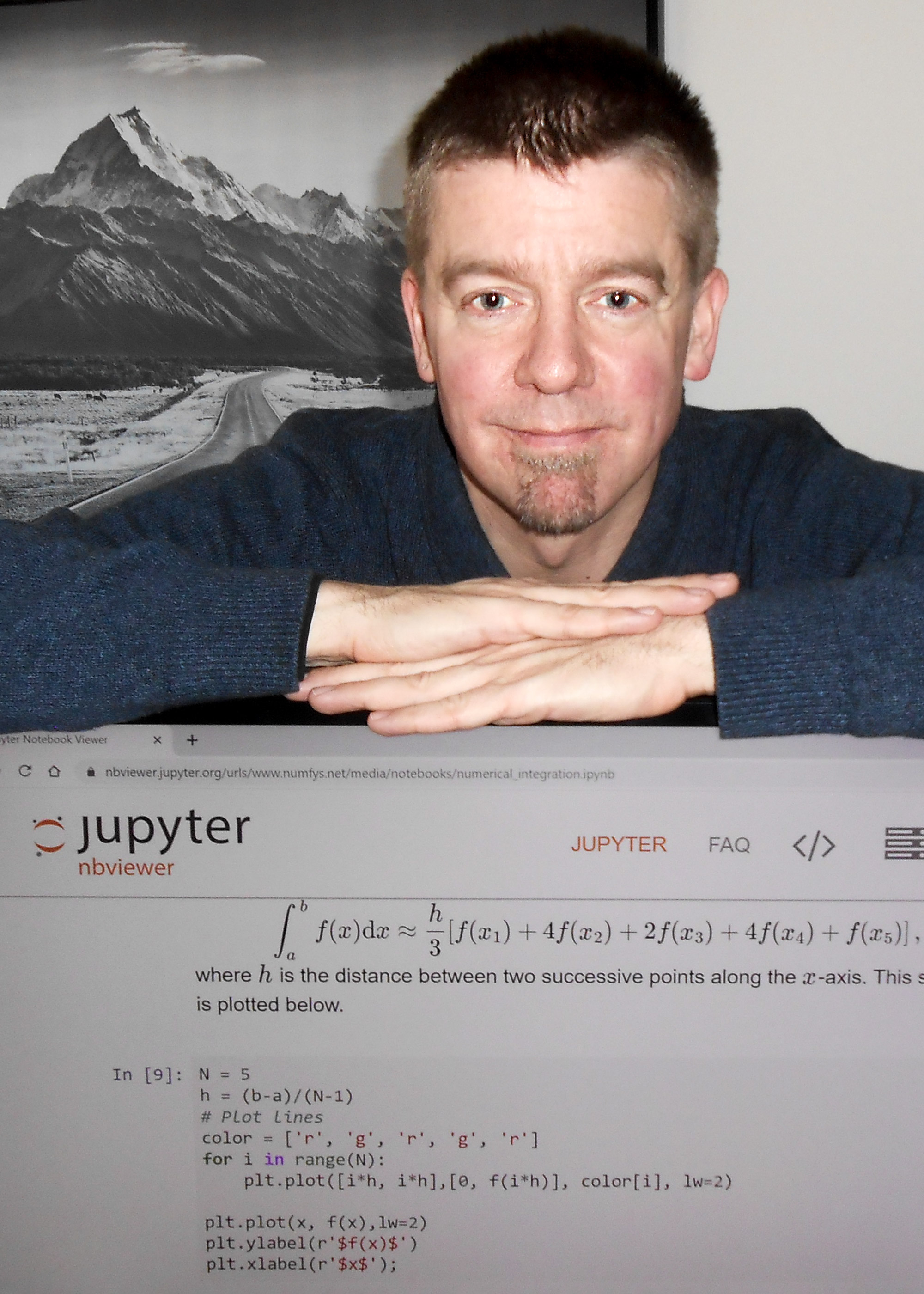Two U of A scientists are creating an online learning platform to provide physics and mathematics lessons to university students in Africa—and anywhere in the world.
The resource being built by Augustana Campus scientists Peter Berg and Jeremy Sylvestre will provide instruction in computational physics and mathematical modelling for a new master’s degree program at the University of Eswatini.
The open resource—which will also be free to anyone in the world—will make it easier for undergraduate and master’s students in physics, math and engineering at the African university to study computational physics, a field that uses computers to make calculations that can’t be done with a pencil and paper.
“This is a visionary project that includes a new approach to teaching this type of physics,” Berg said. “It levels the playing field for African graduate students and, in fact, can leapfrog the university from not having any master’s students in this field to being at the forefront.”
Faculty members and graduate students in the University of Eswatini’s computational physics master’s program are creating the content for the online platform. The university is in the Kingdom of Eswatini, known as Swaziland until 2018.
Simiso Mkhonta, an associate professor of physics at the University of Eswatini, said the project will enhance the university’s profile in the field of scientific computing and help retain the country’s best and brightest scholars.
"The University of Eswatini is the leading research institution in the Kingdom of Eswatini and is working to become the university of choice by developing world-class postgraduate programs such as the MSc in computational physics,” Mkhonta said.
As volunteers with Academics Without Borders, Berg and Sylvestre will also travel to the African country (after pandemic travel restrictions lift) to deliver workshops at the university and visit high schools to share the fascination of computational science with the next generation of scientists.
Open-source tools open up learning opportunities

Using Jupyter Notebook, an open-source programming environment for interactive computing, each learning module focuses on a specific topic in computational physics and features a scientific-writing environment combined with Python code and programming, instructional videos and graphic output like plots and tables.
The free, open-source programming language of Python promotes code readability and easy use, while also providing a large number of built-in functionalities that cover many aspects of computational physics, numerical analysis, data science and machine learning.
“That means students can intersperse text with actual programming code to develop theory, create easy-to-read formulas and conduct subsequent numerical calculations, all in a single web module. In contrast, if you only have a physical textbook in front of you, you can’t execute any code readily and that doesn’t make for very effective or integrated learning,” Berg noted.
“Students don’t have to install anything on their computers—they can just execute the code right in the browser. It’s more straightforward and it really lowers the barrier to learning,” he added.
Because all the work and learning can be done on a laptop, the platform eliminates the need for major infrastructure like labs, making it not only relevant for countries like Eswatini to fill a workplace need for computational skills, but also affordable for any learning institution, Berg noted.
“The learning resources are accessible and can be developed quickly.”
Sylvestre, who will help manage the technological tools that enable the open-source content to be distributed through the platform, is excited about what it means for users.
“This gives us the opportunity to share knowledge with as wide an audience as possible. The products will benefit the University of Eswatini and beyond that, the wider community, for everyone who wants to learn.”
The project also benefits the African university’s launch this year of a centre of teaching innovation, Berg said. “The timing for them is great, and it gives the university more visibility in the greater academic community.”
Working with fellow academics in Eswatini to build the university’s capacity is rewarding, Berg said.
“I’m connecting to some of the smartest people in that country. They can really have quite an impact; they are touching many lives.”
